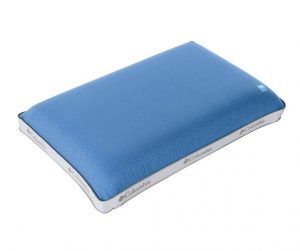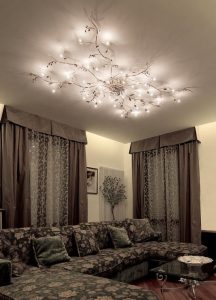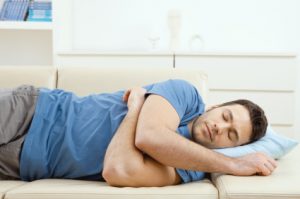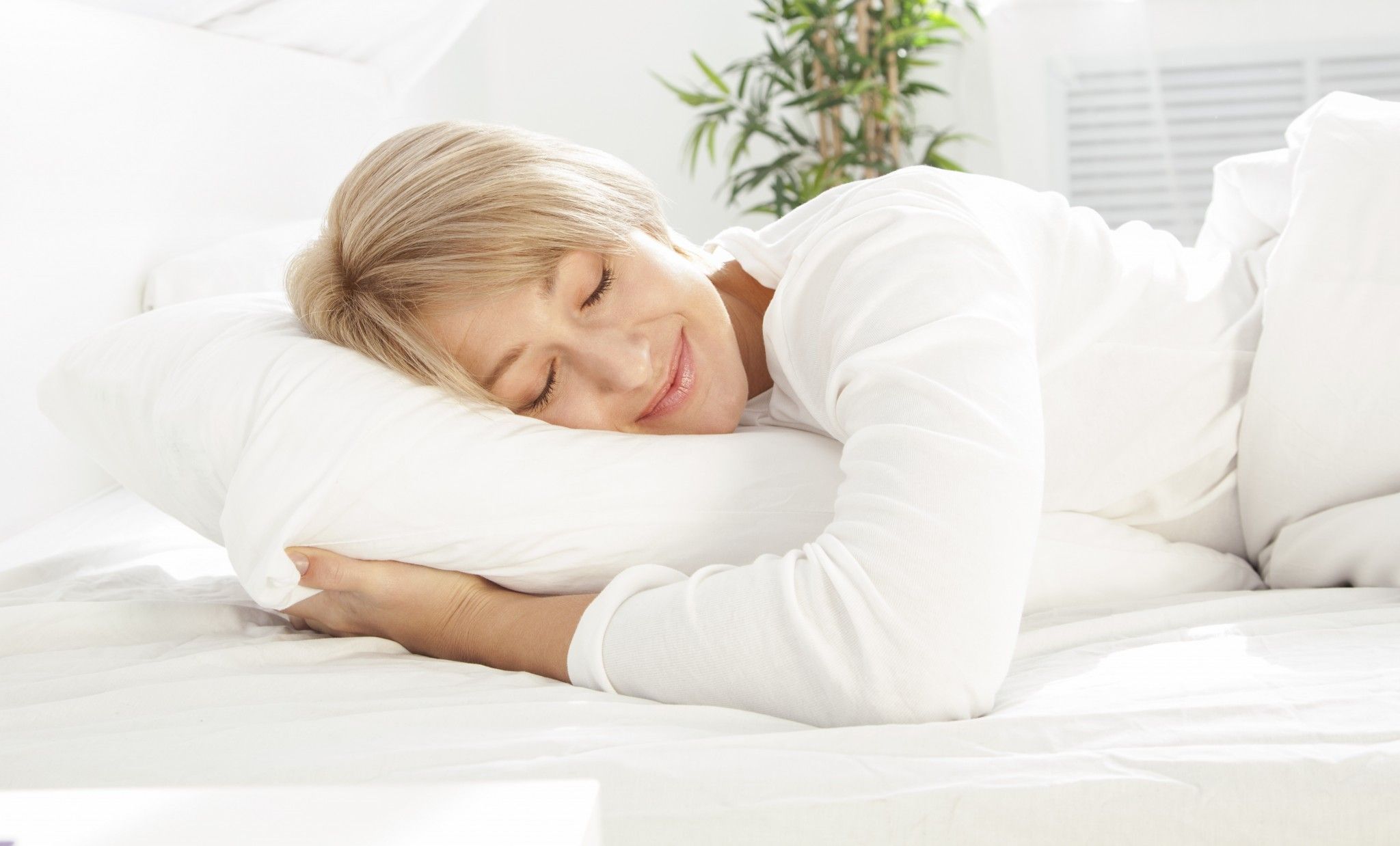This is likely to be our latest post about funny and interesting facts on sleep.
After reading this, you will be able to consider yourself as a master of sleep, as we have basically listed all the pieces of information you would probably have never been told before, so make sure to learn as much as you can!
The best temperature for you to sleep in is between 18 C and 19 C.
Because it is much more effective and simply practical to sleep in cool environments (after all, you can pile up clothes but never remove more than what you are wearing), it is usually recommended to adjust your room’s temperature to around 18 C. If you’re a ‘senior citizen’ and have certain health conditions, this may not be very advisable.
Have you ever heard about cooling pillows or helmets that can make you sleep faster? Well, those actually exist.

Image courtesy: www.mattressfirm.com
In order to tell your body that it is time for bed, your brain uses your body’s temperature. That is why your core temperature tends to drop when you are about to sleep. It is because that is a signal from your brain to make your body send you to dreamland.
And thus, in order to manually lower your body temperature to be able to fall asleep faster, you can use what we call cooling helmets or cooling pillows. Basically, these can make your core temperature drop, which makes you fall asleep easier and faster. They appeared to be highly beneficial and effective to people suffering from insomnia. Many scientific studies have been done to show the effect of a ‘cool head’ on sleep.
This also explains why you are usually advised to work out several hours before bed. It is so that your core temperature naturally goes down – because of the blood pumping during work out – when bedtime approaches. That way, you can join dreamland faster than ever.
Insomnia and depression are very tightly linked together.
We have talked many times about insomnia on our website. Briefly, insomnia is a sleeping disorder that refers to when someone is unable to fall asleep or staying asleep at night. It can also be, rather than a disorder in itself, a symptom of another illness.
It has been discovered that patients with depression or anxiety are those who tend to suffer the most from insomnia. That is why such individuals often opt for cannabis products like cannabis oil which can help ease the symptoms of depression and insomnia. That said, the consumption of cannabis oil can be done in many ways, but one of the newest and most convenient ways is through vape cartridges which can be used in vape pens. While some may favor CBD oils and edibles, vaporizers can be another beneficial option that you can use either every day or once in a while depending on your preference. If this interests you and want to learn more about which vaporizer should you choose, you can go through various guides available online on types of vapes, heating methods, potency, etc.
You can get a desktop or portable vaporizer. Desktop vapes are electricity powered and are more suited for home use, whereas vape pens are portable, easy to use, and require cartridges. Vape carts are glass cartridges prefilled with cannabis oil in the amount of a gram or half a gram. The battery of the vape powers an atomizer in the cartridge, which heats up the oil and activates its diverse chemical composition. Hence, when individuals inhale the vapour, they experience the effects of cannabis. (Note: Vape cartridges can be sourced from the likes of lowpricebud).
It is completely natural for you if you tend to feel very sleepy and unusually tired every day at the same hour, especially if it is around 2PM to 6PM.
Our sleeping cycle depends on two factors:
- The homeostasis: this basically counts how many hours you have been asleep and how many hours you have been awake so that it finds the right balance between the amount of time you should be awake as well as the amount of time you should be asleep.
- The circadian rhythm: this corresponds to your personal body and mind schedule that keeps track of your mood, hormones, emotions, etc.

Image courtesy: www.pinterest.com
The reason as to why these two factors exist is simple: they are here to help us control our sleeping patterns and schedules better than we can do on our own.
And the thing is that, as these two factors try to regulate and keep track of our sleeping schedules, it happens so that they make us feel very sleepy from 2 to 6 both in morning and afternoon. That is why there is absolutely nothing wrong with feeling a bit tired at such moments, it is your body that decides of that. And don’t worry about sleeping disorders. When you suffer from an actual sleeping disorder, the symptoms are much worse than just feeling tired in the afternoon.
To be make things clearer, here is an example:
If you sleep at 11PM and get up at 7AM, then it is only normal for you to start feeling tired towards 9AM because that is how your circadian rhythm works. But worry not, once the peak will go down, you will start to feel awake and alert all over again, so all you have to do is to basically wait until the feeling of sleepiness fades away.
You will also definitely feel a bit tired at the beginning of the afternoon, but again, all you have to do is wait for the peak to pass and you will be good to go!
Funny fact: taking naps is considered a societal habit in some cultures, or even a right in other societies.
In countries like China where you are expected to be highly efficient and productive, it isn’t unusual to expect from business workers to take power-naps at lunch so that they can give it their all in the afternoon.
In other countries where the weather tends to be very hot, it isn’t even expected from employers to work. They are actually supposed to stay indoors and nap – usually at the beginning of the afternoon – as hot temperatures reach their peak at that moment, which has an enormous influence on humans’ circadian rhythms: we tend to feel so much sleepier when the weather is hot, which of course has a very bad impact on people’s productivity at work, hence why they are expected to take power-naps.
Believe it or not, your sleeping schedule depends heavily on how lightened your environment is.

Image courtesy: www.pinterest.com
We all have, inside of our body, what we call our biological clock. It is programmed based on the natural way of things. In other words, there is this clock within you that follows the rules of Nature and that is responsible for your sleeping schedule.
That actually explains why we tend to switch off the lights and close IWS Shutters & Blinds when we want to sleep, or why we are under the impression of being able to sleep for weeks as long as we are in a completely dark place. It is because Nature is made so that we cannot fall asleep when there is light. Light is basically what helps set your body’s clock.
Naps should never exceed 20 minutes.

Image courtesy: www.pinterest.com
Many people go for power-naps in order to avoid consuming caffeine and going through their day without feeling too tired.
However, it isn’t unusual to hear people complaining about how they regret taking a nap because all that manages to do is to make them feel even more tired than before and completely lost.
That is because a proper, helpful nap should never last for more than 20 minutes. Otherwise, you are likely to get into deep sleep, which, when interrupted, gives you that feeling of being lost and makes you feel exhausted.
On top of that, sleeping for more than 20 or 30 minutes will unfortunately disturb your sleeping schedule, and you might end up dealing with sleep deprivation because of that.

